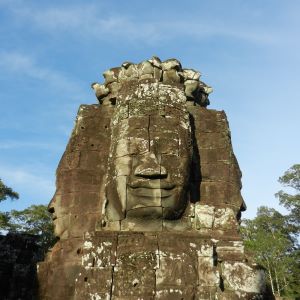 Zhaohua Yang
Zhaohua Yang
Sheng Yen Assistant Professor of Chinese Buddhism
Office: Room 307, 80 Claremont
Office Hours: M 6:00-6:45 PM/W 4:45pm-6:00 PM; email for appointment confirmation
Phone: (212) 851-4147
Email: zy2200@columbia.edu
Educational Background
PhD: Stanford University
Classes Taught
RELI UN2405 Chinese Religious Traditions
RELI GU4307 Interactions of Buddhism and Daoism in China
CHNS GR9333 Readings in Chinese Religion
Research Interests
Zhaohua Yang received his M.A. and Ph.D. from Stanford University. He specializes in tantric or esoteric Buddhism in middle-period China. His research interests also include indigenous scriptures, the interactions between Buddhism and Daoism, and religions on the Silk Road. In addition to his training in pre-modern Dunhuang and Japanese manuscripts, he has done extensive fieldwork in Mainland China, Taiwan, Japan, and the US. He is finishing his first book manuscript, Devouring Impurities: Myth, Ritual and Talisman in the Cult of Ucchuṣma in Tang China (618-907), which explores Chinese responses to antinomian tantric practices as seen through a Dunhuang manuscript on this fierce god. His next project, tentatively titled Performing Yoga: Transformations of Buddhist Ritual in Late Imperial China (960-1450), studies the evolution from Yoga in esoteric Buddhism to Yoga as a monastic category in institutional Buddhism.
Selected Publications
“Snake, Spell, Spirit, and Soteriology: The Birth of an Indian God Jiedi 揭諦 in Middle-period China (618-1279).” Religion 14 (2023)
 Gray Tuttle
Gray Tuttle Adjunct Professor
Adjunct Professor
